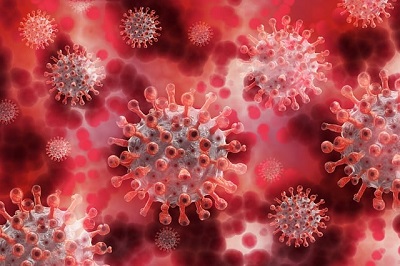A Symptomatic Chlamydia Infection in Men: To Treat or Not?
Alex is a young man who unexpectedly tested positive for a chlamydia infection during a routine physical examination. However, he is confused because he feels no discomfort or symptoms. Alex is deeply conflicted: does this asymptomatic chlamydia infection need treatment?

Situations like Alex's are not uncommon. Many men who discover they have a chlamydia infection but show no symptoms face the same dilemma: to treat or not to treat?
Chlamydia is a microorganism between bacteria and viruses, capable of causing various diseases in the human body, especially infections of the urogenital system. When men are infected with chlamydia, it may affect areas such as the urethra, prostate, and epididymis.
Although there are no apparent symptoms, asymptomatic chlamydia infections are not harmless:
First, they can silently damage the function of the reproductive organs. Chlamydia can remain dormant in the reproductive tract for a long time, causing chronic inflammation, leading to decreased sperm quality, and affecting male fertility.
Second, they increase the risk of infections from other diseases. A chlamydia infection can stress the body's immune system, making it more susceptible to pathogens like bacteria and viruses.
Furthermore, asymptomatic infections are also contagious. Even if one does not feel discomfort, they can unknowingly transmit chlamydia to sexual partners, posing a threat to their health.
To treat or not to treat?
If a patient exhibits no obvious discomfort and no other pathogen infections are found during examination, specific treatment is usually unnecessary. However, it is recommended that patients maintain personal hygiene, frequently change underwear, and wash the external genital area with clean water daily.
If a man experiences significant symptoms such as urethral itching, frequent urination, or painful urination after chlamydia infection, and examination reveals thin, serous discharge from the urethral opening, then treatment is required.
Early treatment can effectively eliminate chlamydia from the body, prevent the condition from further worsening, and protect the normal function of the reproductive organs. Timely treatment can also reduce the risk of transmission to others, reflecting a sense of responsibility and care for the partner's health.
In the long term, treatment can reduce the potential complications that may arise later, such as epididymitis or seminal vesiculitis, safeguarding reproductive health.
Treatment for male chlamydia infections typically involves antibiotics. Doctors will choose the appropriate type and duration of antibiotics based on the specific situation. During treatment, patients need to strictly follow medical advice regarding medication, ensuring that the dosage and duration are sufficient to eliminate chlamydia.
If the antibiotics are ineffective, patients may take herbal medicine Diuretic and Anti-inflammatory Pill, which is suitable for stubborn conditions and has a low recurrence rate. During the treatment period, it is advisable to avoid sexual activity or use condoms to prevent transmission to partners.
Post-Treatment Precautions:
After completing treatment, regular follow-ups are necessary to confirm that chlamydia has been wholly eradicated. Maintaining good lifestyle habits, such as a balanced diet, moderate exercise, and adequate sleep, helps improve the body's immunity and prevents re-infection by chlamydia.
Attention to personal hygiene, especially cleanliness in the genital area, is crucial. Regularly changing underwear and avoiding unprotected sexual activity is essential.
In summary, although male chlamydia infections may be asymptomatic, treatment is the wiser choice. Treatment protects one's reproductive health, reduces the risk of transmission, and avoids potential complications.
For men, once a chlamydia infection is discovered, regardless of symptoms, it is essential to actively communicate with a doctor, weigh the pros and cons, and make health-conscious decisions.
You may also be interested in:
What Is The Incubation Period For Chlamydia In Men?



